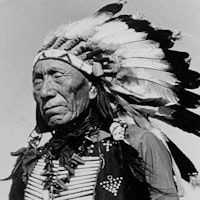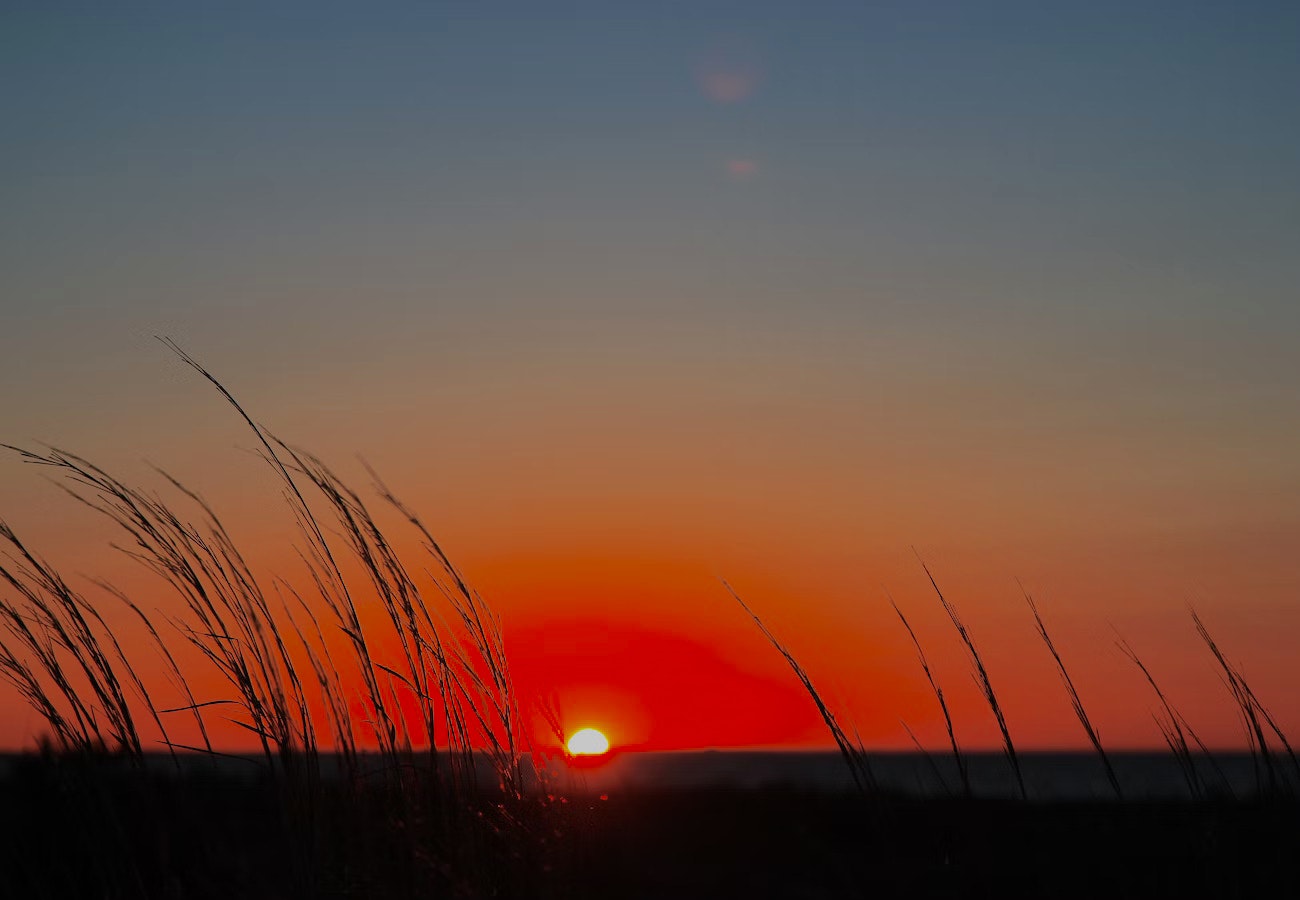The heart is a sanctuary at the center of which there is a little space, wherein the Great Spirit dwells, and this is the Eye.
The heart is a sanctuary at the center of which there is a little space, wherein the Great Spirit dwells, and this is the Eye.
Black Elk [Heȟáka Sápa]

The Heart Is a Sanctuary
Topic: Prayer, Meditation, & Contemplation
I am blind and do not see the things of this world; but when the light comes from above, it enlightens my heart and I can see, for the Eye of my heart sees everything; and through this vision I can help my people. The heart is a sanctuary at the center of which there is a little space, wherein the Great Spirit dwells, and this is the Eye. This is the Eye of the Great Spirit by which He sees all things, and through which we see Him. If the heart is not pure, the Great Spirit cannot be seen, and if you should die in this ignorance, your soul cannot return immediately to the Great Spirit, but it must be purified by wandering about in the world. In order to know the center of the heart where the Great Spirit dwells you must be pure and good, and live in the manner that the Great Spirit has taught us. The one who is thus pure contains the Universe in the pocket of his heart.
Heȟáka Sápa, commonly known as Black Elk, was born in December 1863 along the Little Powder River in what is now Wyoming. He was a member of the Oglala Lakota (Sioux) and a second cousin to the renowned war leader Crazy Horse. From a young age, Black Elk experienced profound spiritual visions that would shape his life and destiny. At the age of nine, during a severe illness, he had a vision in which he encountered the Six Grandfathers, spiritual beings who bestowed upon him gifts and powers, including the ability to heal. This vision set him on the path to becoming a wičháša wakȟáŋ, or holy man, a role he embraced throughout his life.
Black Elk's life was marked by significant historical events and personal transformations. He participated in the Battle of the Little Bighorn in 1876 and witnessed the tragic Wounded Knee Massacre in 1890. In the late 1880s, he traveled to Europe with Buffalo Bill's Wild West Show, where he sought to understand the ways of the white people. Upon returning to the United States, he became involved in the Ghost Dance movement, which aimed to restore the Native American way of life. Despite the suppression of this movement, Black Elk continued to serve his people as a healer and spiritual leader, blending traditional Lakota practices with his later conversion to Catholicism in 1904. He became a catechist, teaching Christianity while maintaining his Lakota spiritual beliefs.
Black Elk's legacy extends beyond his lifetime through his contributions to literature and spiritual teachings. His autobiographical accounts, shared with poet John G. Neihardt and anthropologist Joseph Epes Brown, were published in the influential works "Black Elk Speaks" and "The Sacred Pipe." These books have inspired generations and contributed to the revival of Native American culture and spirituality. Black Elk's ability to integrate his Lakota heritage with his Christian faith exemplifies his resilience and adaptability. His life and teachings continue to resonate, symbolizing a bridge between cultures and a testament to the enduring spirit of the Lakota people.
The Sacred Pipe
Wilson, Andrew, editor. World Scripture II. Universal Peace Federation, 2011, p. 329 [Black Elk (Heȟáka Sápa)].

Black Elk [Heȟáka Sápa]
Theme: Meditation and Contemplation

About This Black Elk [Heȟáka Sápa] Quotation [Commentary]
Black Elk [Heȟáka Sápa] teaches that true vision comes not from physical sight but from the “Eye of the heart.” He begins, “I am blind and do not see the things of this world,” yet when “the light comes from above, it enlightens my heart and I can see.” This light does not reach the intellect alone but moves through the heart, awakening a deeper seeing. He explains that “the heart is a sanctuary at the center of which there is a little space, wherein the Great Spirit dwells, and this is the Eye.” This interior space is not symbolic—it is where divine presence and perception are joined. In the practice of meditation and contemplation, this place of stillness is not something to be imagined but entered.
This Eye is “the Eye of the Great Spirit by which He sees all things, and through which we see Him.” Through it, one may see clearly and serve wisely: “through this vision I can help my people.” But this way of seeing is not automatic. Black Elk warns that “if the heart is not pure, the Great Spirit cannot be seen.” The heart must be made ready, made good. Without this inner purification, “your soul cannot return immediately to the Great Spirit, but it must be purified by wandering about in the world.” Clarity of vision depends on a life aligned with what the Great Spirit has taught—not only inward quiet, but also outward rightness.
Black Elk offers a direct instruction: “In order to know the center of the heart where the Great Spirit dwells you must be pure and good.” This knowing is not distant or abstract. When the heart is rightly prepared, one does not merely see more clearly but is changed: “The one who is thus pure contains the Universe in the pocket of his heart.” The small space at the center of the heart, once opened by light, becomes vast. In the stillness of contemplation, guided by this light from above, the Eye of the heart may begin to see.
Black Elk, Heȟáka Sápa, Frithjof Schuon, editor, quoting Black Elk in “The Sacred Pipe”
It is only at the level of the transpersonal or the Absolute itself—what is above and higher and simultaneously at the center, both transcendent and immanent—that authentic integration can be established. Some might be curious and even challenge the definition of the intellect as equivalent to the Spirit, but we need to stress that the intellect in this context is not the discursive faculty of reason but what subsumes this lower faculty and transmutes it into a transcendent faculty. This spiritual organ, also known as the “Eye of the Heart” is illuminated by Heȟáka Sápa or Black Elk (1863-1950), a remarkable sage of the Lakota Sioux:
“I am blind and do not see the things of this world; but when the Light comes from Above, it enlightens my heart and I can see, for the Eye of my heart (Chante Ista) sees everything. The heart is a sanctuary at the center of which there is a little space, wherein the Great Spirit dwells, and this is the Eye (Ista). This is the Eye of the Great Spirit by which He sees all things and through which we see Him. If the heart is not pure, the Great Spirit cannot be seen, and if you should die in this ignorance, your soul cannot return immediately to the Great Spirit, but it must be purified by wandering about in the world. In order to know the center of the heart where the Great Spirit dwells you must be pure and good, and live in the manner that the Great Spirit [Wakantanka] has taught us. The one who is thus pure contains the Universe in the pocket of his heart (Chante Ognaka).”
—Frithjof Schuon, editor, quoting Black Elk in “The Sacred Pipe,” [The Feathered Sun: Plains Indians in Art and Philosophy (Bloomington, IN: World Wisdom Books, 1990)] p. 51. (See Resources for additional attribution for this commentary.)
Additional Black Elk Quotes
Resources
Related Quotes
Copyright © 2017 – 2026 LuminaryQuotes.com About Us